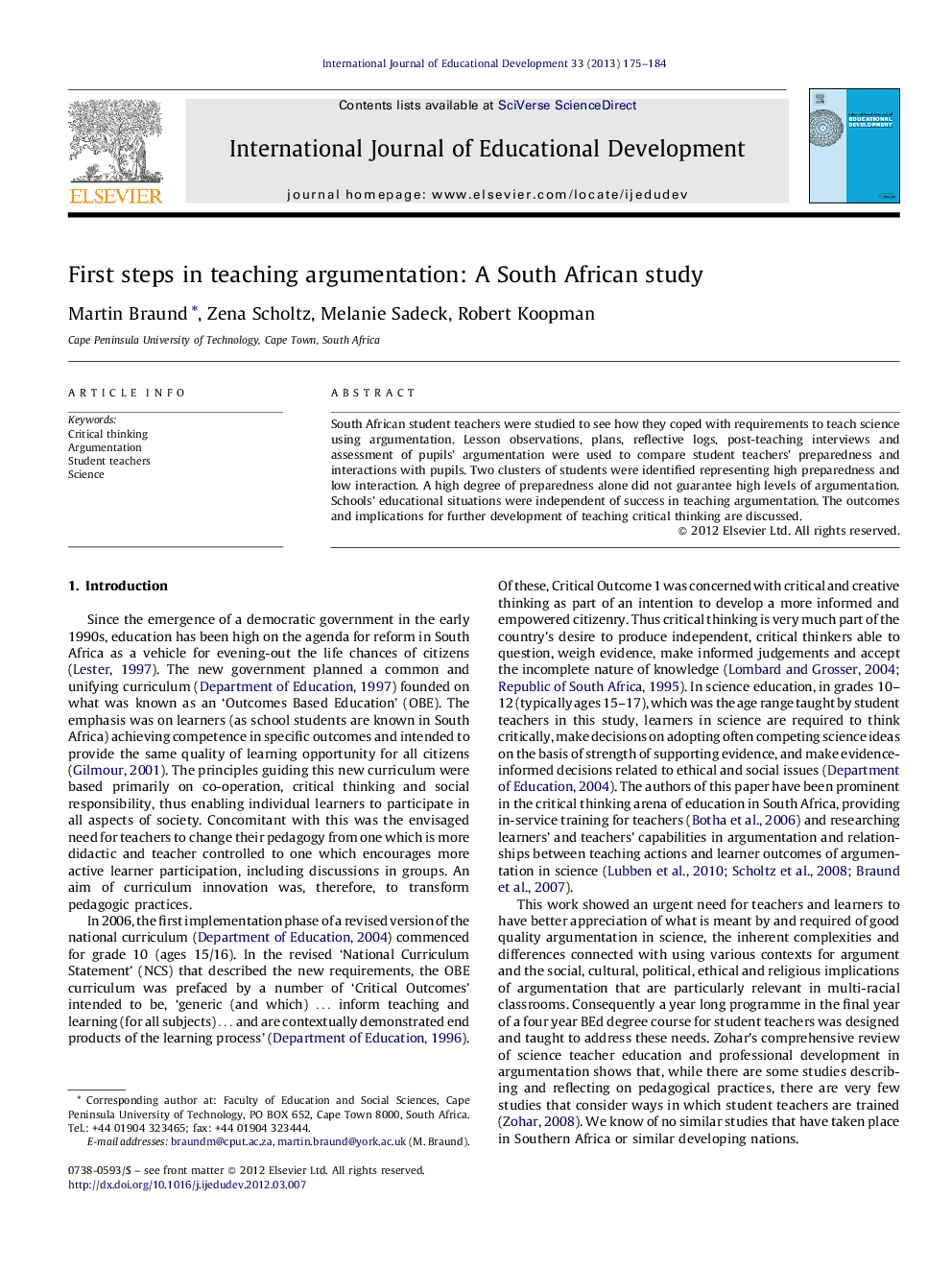| Article ID | Journal | Published Year | Pages | File Type |
|---|---|---|---|---|
| 356226 | International Journal of Educational Development | 2013 | 10 Pages |
South African student teachers were studied to see how they coped with requirements to teach science using argumentation. Lesson observations, plans, reflective logs, post-teaching interviews and assessment of pupils’ argumentation were used to compare student teachers’ preparedness and interactions with pupils. Two clusters of students were identified representing high preparedness and low interaction. A high degree of preparedness alone did not guarantee high levels of argumentation. Schools’ educational situations were independent of success in teaching argumentation. The outcomes and implications for further development of teaching critical thinking are discussed.
► South African student teachers were studied to see how they coped with teaching using argumentation in science. ► Student teachers were placed on a grid showing level of preparation and interaction with learners. ► Good argumentation is connected with student teachers’ preparation and interaction with learners. ► Student teachers had problems handling group collaboration and generating questions to contextualise, stimulate and progress arguments. ► Student teachers’ successes were independent of schools’ educational situations.
